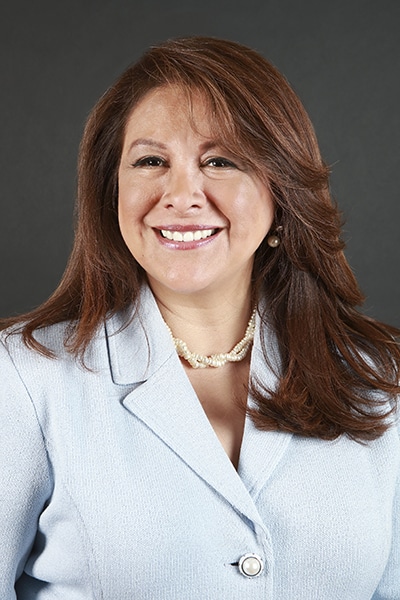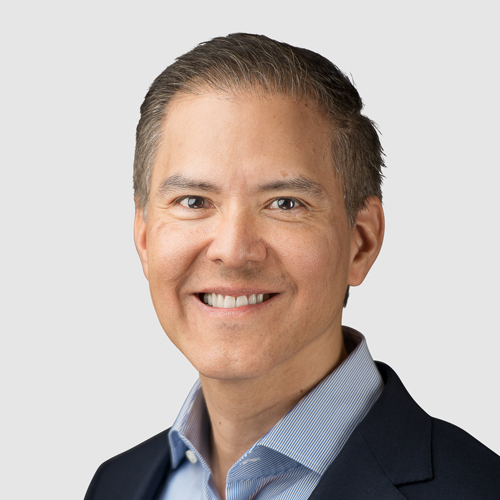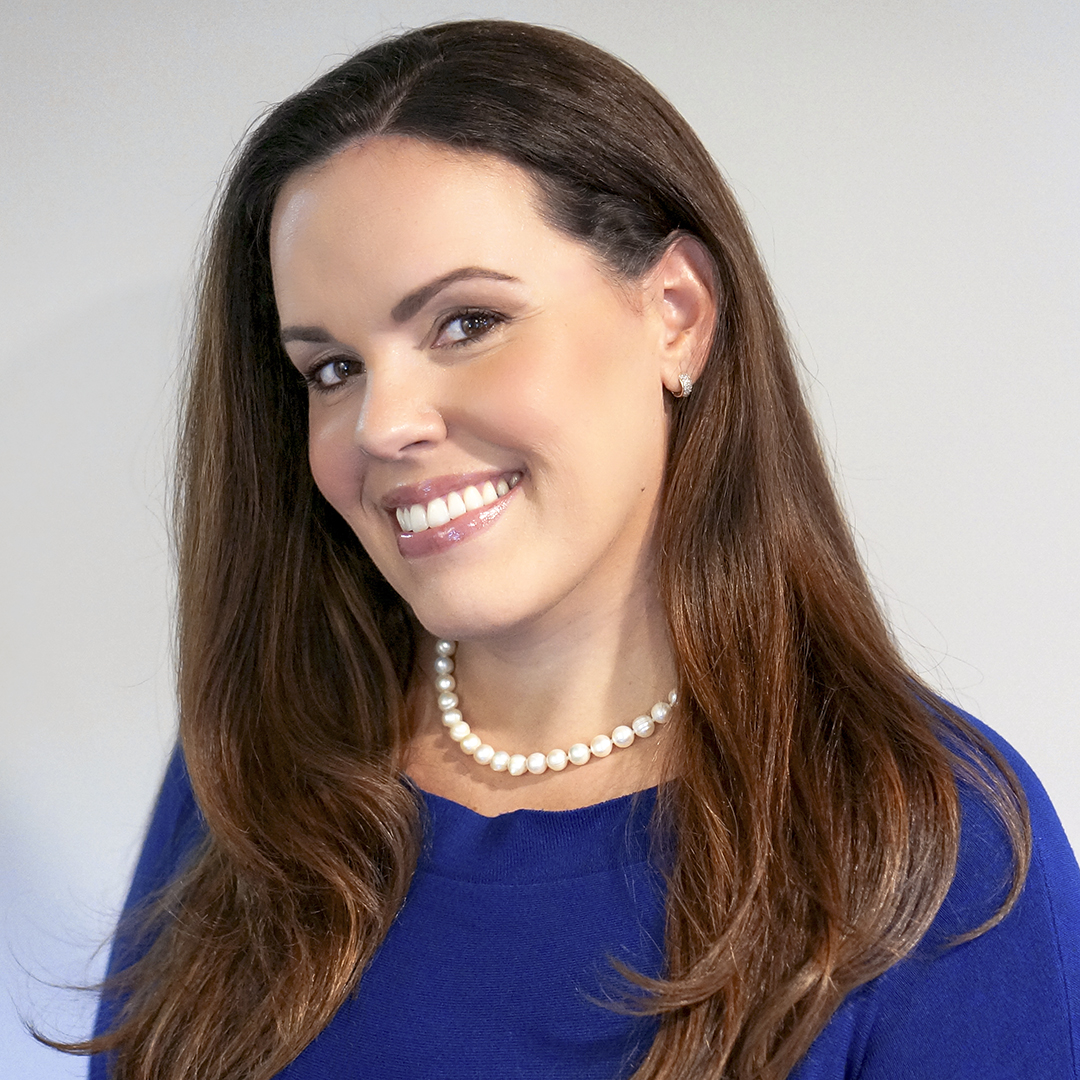|
Getting your Trinity Audio player ready...
|

At age ten, Ana Valdez already knew the power of marketing. Born and raised in Mexico City, she remembers a successful public service advertising campaign that promoted water conversation in the city, a positive cause that remains an issue in Mexico City and around the world. “That is when I realized that marketing and media have this incredible capacity to create such a big change,” she says.
Valdez has since turned that early experience with marketing into a successful career that has brought her everywhere from Geneva, Switzerland, to Madrid, Spain, to her current home in Los Angeles. With a marketing degree from Tecnologico de Monterrey and a master’s in international relations from Instituto Ortega y Gasset in Madrid, Valdez has held many prestigious marketing and communications roles at organizations, including Nielsen Mexico City, Banamex (now Citibank), the United Nations’ Commission for Human Rights, and the Clinton administration. Today, she heads two companies that she cofounded: Valdez Productions Inc. and The 650 Company. Throughout her entire career, however, she has always maintained a dedication to working for nonprofits and contributing to the greater good.
“My nonprofit life runs parallel with my career because I’ve always wanted to give back,” she says. “So, my professional life is acting as consultant at my companies, and my nonprofit life is acting as a consultant, too, but as a board member and volunteer.”
Currently, Valdez is the executive director of the Latino Donor Collaborative. The organization’s mission is to frame the US Latino story as an integral part of the American story, to advance an accurate portrayal and perception of the Latino community in America, and to be the voice of the economic impact that Latinos make to American society. With that mission, the LDC is the perfect setting for Valdez to use her years of marketing and communication experience to help the greater good. Here, she shares her insights to what it takes to be the executive director of the LDC and how the organization is changing the conversation about Latinos in the United States.
How did you get your start in marketing?
In my first job, I worked for Nielsen for four years in Mexico. I was one of the first women that they actually hired. It used to be a very male-oriented company in Mexico. That really marked my future professional life. Marketing is very important to me. I think utilizing media to create a change is important.
What skills have you developed that you think serve you best in your career?
Know your market from all of the different angles. Marketing 101 is know your audience, know your market, know who really want to affect, and then know how can you bring them what they need. That is probably the biggest lesson of marketing for me, and in the nonprofit world, it’s usually change that makes people’s lives easier, happier, and more fluid. So, utilizing media to create that kind of change—it’s really a pleasure of mine.
What is the most important lesson in leadership that you’ve learned?
Keep focused on the goal. Know what you want, first of all, and then keep focused on your goals and work hard. Focus and hard work—that’s what it’s about.
How has that lesson served you well in your career?
Well, for example, the main goal of the LDC is to rebrand Latinos and to create an image of Latinos that is accurate with the reality of who Latinos are. So, it is a constant job for all of us to remain focused on that because there’s so much that concerns Latinos.
Education is very important for Latinos as well as healthcare and, obviously, politics. There are so many issues that, if we tried to tackle all of them, we would never finish. There’s so much to do, but we continue to stay focused on creating research to show who Latinos are and to rebrand Latinos.
We hear so many negative things. We hear about tragedies on the US-Mexico border, and we hear about how Latinos have less opportunity. And as much as we would like to be part of all of these issues, we really have to continuously focus on our job, which is to create the numbers that show who Latinos are in this society and what they do for this economy.
Why did you initially become involved with the LDC?
It is an organization that has that same goals as I have, which is to improve the image of Latinos and their participation in media. And the LDC uses a fantastic argument, which is the economic argument. The LDC is not a grassroots organization; the LDC is a group of people that show decision makers in business the importance of including Latinos—for a better bottom line, for a better top line, for more of a market share, and for better competitiveness.
How has living around the world changed your perspective?
I was born and raised in Mexico City, and then I lived in Spain and then in Geneva, Switzerland. I have, of course, lived in the United States on and off, too. My experience internationally has been one of the biggest assets to understand the dynamics of the Latino community in the United States. I understand being in a country where immigrants arrive, but I also understand being an immigrant. That allows me to be the bridge the gap between the two parts, and that also allows me to understand the structure of this incredibly diverse country and the evolution of this diversity over the past forty years.
As you know Latinos were 9 percent of the US population in 1980. And now they are 18 percent. I mean they literally doubled the percentage, and this is an experience that makes us a very different community than anybody else around. We are the community that integrates the most, but we also are one of the communities that keeps their traditions in a more predominant way. So, my international experience has really helped me to understand the transition from all of the sides.
My husband happens to be a Latino whose family came here in 1520. So, I also have that incredible window to understanding people that feel Latino and act Latino in a lot of different ways, but that are 100-percent American because their families have been here for four hundred years.
The Latino community is also diverse in itself. For example, the LDC is a great mix of people with roots in Cuba, Mexico, El Salvador, Puerto Rico, Spain, etc. And I can find the commonalities to bring everybody together. That is really helpful. I probably wouldn’t have that talent if I wouldn’t have lived in Spain or if I wouldn’t have been born and raised in Mexico. I’m proud to serve this organization and truly believe in its mission.

